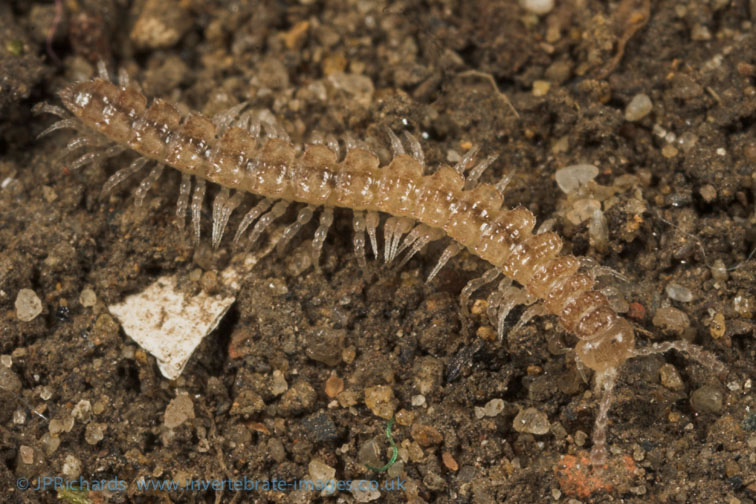Brachydesmus superus Latzel, 1884
Status:
GB IUCN status: Least Concern
ID Difficulty
Identification
This is a small flat-back millipede reaching 10mm in length. Adults ( i.e. specimens with visible gonopods or epigynal flange) can be readily identified by having 19 body rings (20 body rings in all other adult Polydesmidae, but fewer in immatures).
Distribution
This is a common and widespread species in Britain and Ireland.
Brachydesmus superus is common throughout almost the whole of Europe and has been introduced to the USA, many of the Atlantic islands and Juan Fernandez Island in the Pacific (Kime, 2001).
Habitat
It is a generalist which has been recorded from a very wide range of habitats but analysis of recording scheme habitat data suggests a strong association with waste ground. However, there is no evidence it is an urban or suburban species despite the strong synanthropic tendencies quoted by Jeekel (2001) and by Kime (2001). It is often referred to as a pest in arable fields but less than 7% of the British and Irish records of the species were from cultivated land. The habitat analysis suggests a strong association with clay soils. Jeekel (2001) reported that the species seemed to prefer humid, humus-rich soils whether they were sands or clays. Blower (1985) and Kime (1995) both considered B. superus to reach the highest population densities on limestone, especially in woodland. Although below the threshold for a strong association, the habitat analysis does provide some evidence of a preference for calcareous soils.
Phenology
Adults have been recorded in all months of the year but most frequently from March to June. There are very few records of adults from August and September. It appears to be an annual species (Blower, 1979) that matures in the spring and dies following breeding / ovipositing. A few animals mature early and over winter as adults (Stephenson, 1961).
This species account is based on Lee (2006).
Links
MilliBase - Global catalogue of Millipedes: https://millibase.org/aphia.php?p=taxdetails&id=949992





